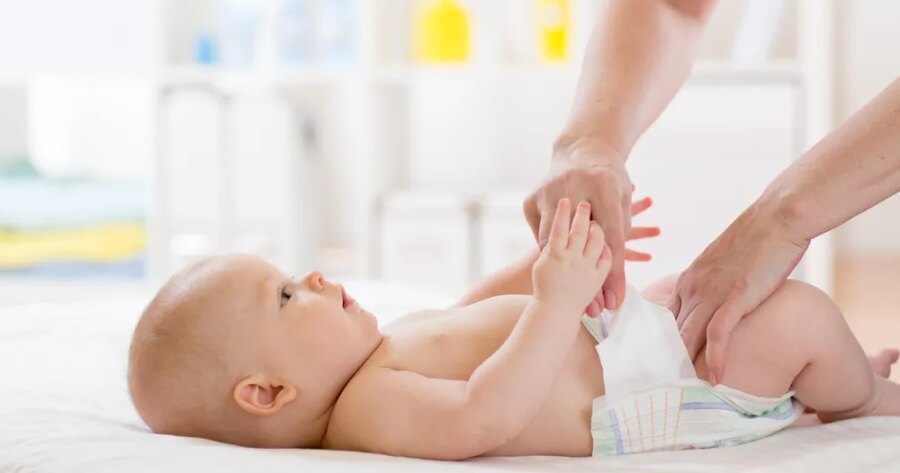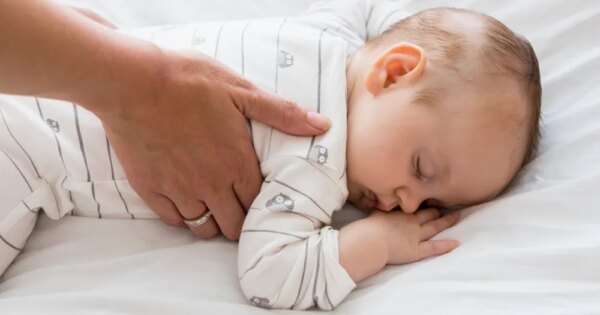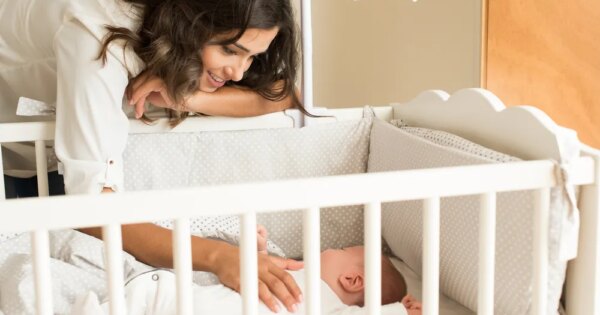Urinary Tract Infections are quite common in kids. They occur when bacteria gets into the bladder or kidneys. More common in girls, UTIs can be very painful and uncomfortable. Babies or toddlers that have a bladder infection need to see a doctor. Antibiotics can be prescribed that will kill the bacteria and eliminate the UTI. Below we have listed 6 symptoms that your child may show when they have developed a bladder infection. In addition, we have found 6 tips for treatment ideas. Please consult your doctor or medical professional before using any of these tips.
Symptoms
1. Blood in Urine
This can be very alarming to see your child struggle with, but it is common if the bladder infection is severe. If you notice blood in your child’s diaper, or see some when they wipe it is important to take them to the doctor to determine the best steps to take to help them. If you have a toddler, this might seem scary to them. Reassure them that this is surprisingly common, and can be easily fixed.
2. Strong Smelling Urine or Cloudy Urine
If your child has strong smelling urine this does necessarily mean that a bladder infection is present. Take into consideration if it smells very pungent, or different from what it normally would smell like. Keep in mind a urine sample will need to be provided to test for a UTI at the doctor’s office. If your child is talking, as them if they notice anything different about their pee, including if it smells different to them. Cloudy urine is harder to diagnose, especially if your child is still in a diaper. If you have suspicions of a bladder infection it will be easier to see if your child has cloudy urine if you collect a sample.
3. Frequent or Urgent Need to Urinate
This is one of the most common symptoms of a bladder infection. If you notice your child is using the bathroom more than they usually do, and seems to be urgently needing the toilet and not being able to hold it, they may have a bladder infection. Yet again, this is harder to tell if your child is still in diapers, but if you feel like your child’s diaper is heavier than normal you may want to start monitoring more closely.
4. Pain or Burning with Urination
If you notice that your baby is crying more than they usually would, or if they are making painful faces when going pee, this can be connected to a bladder infection. In toddlers, they will most likely be telling you that it hurts when they pee. Some children though may not tell you, so if you notice your child is trying to resist going to the bathroom you can ask them if they are feeling any pain or a burning feeling when they use the toilet.
5. Pain in Lower Pelvis or Back
If this pain is severe, there is a strong chance that the infection has spread to the kidneys, and become more serious. You should take your child to the doctor right away. In babies this is hard to tell, as you can’t ask them where the pain is localized. However if you notice they are in pain, and are also showing other symptoms this can help you to detect a bladder infection. If your toddler is complaining that they are hurting, as them to point to where it hurts.
6. Chills, Fever, and Nausea
These symptoms are also most likely occur if the infection has spread to the kidneys, and are more serious in nature. The chills will usually have the child quite shaky, where the fever will have them feeling flushed with warm or reddened skin. You might also notice that your child is very lethargic and has no energy. Go to your doctor immediately to see what the next steps would be in helping your child with their bladder infection.
Treatment Options
1. Antibiotics
The best possible treatment for a UTI is going to your doctor and getting antibiotics to kill the bacteria. Use as prescribed, and take all the medication as directed, even if your child no longer shows signs of the bladder infection. While this is the most obvious treatment, it cannot be stressed enough that going to your doctor for their opinion is always the best choice for treating any ailment that your little one might have.
2. Unsweetened Cranberry Juice
This tried and true method is one of the most popular solutions to getting rid of a bladder infection. This is more handy for toddlers, as your baby will most likely not be drinking juice at this stage of their development. Make sure that you get unsweetened cranberry juice, and not cranberry cocktail. The unsweetened version is much more concentrated and has a better chance of helping to clear up your child’s bladder infection. If your child does not care for the strong taste of the juice you can always dilute it with some water to make the juice taste less strong.
3. Drink Lots Of Fluids
One of the best ways to help get rid of a bladder infection is to attempt to flush it out. Avoid sodas, caffeinated drinks, and any really sugary liquids. Water is the best drink for your child. Have them drink as much as they can, which will get them to pee more frequently. This can help the bladder infection leave your child’s body faster than it normally would. If your child is not a big water drinker you can make the drink more fun with funky straws and different shaped ice cubes.
4. Probiotics
Probiotics can help to restore the “good” bacteria that is normally in your child’s system. Probiotics can sometimes help reduce the symptoms of a bladder infection. Ask your doctor if there is a probiotic that would work best for your child. Do a lot of research before you give your child the probiotic. Some are in powder form and need to be diluted, whereas some can be in the form of a chewable tablet. Make sure you are getting the right kind for your child’s age.
5. Have Your Child Urinate Often
This goes hand in hand with giving your child more liquids. Sometimes, because they are experiencing pain when they pee, your child will resist going to the bathroom. However, if they urinate more frequently, they have a better chance at quickly passing the bad bacteria through their systems. Encourage your child not to hold their pee in, and give them lots of praise or even a small reward when they use the toilet. If your child is in diapers, make sure you change them often so you can monitor the amount of urine that is being processed.
6. Vitamin C
Vitamin C strengthens the immune system. This in turn can help prevent bladder infections before the even have a chance to develop. This treatment is the most preventative of all the treatments suggested, but is a good idea if you want to help prevent future bladder infections. Consult with your doctor to determine the best way to ensure your child is getting enough Vitamin C in their diet. There are many different ways that Vitamin C can be given to babies and toddlers, and it is best that you find the most appropriate way to give it to your child for their age.















